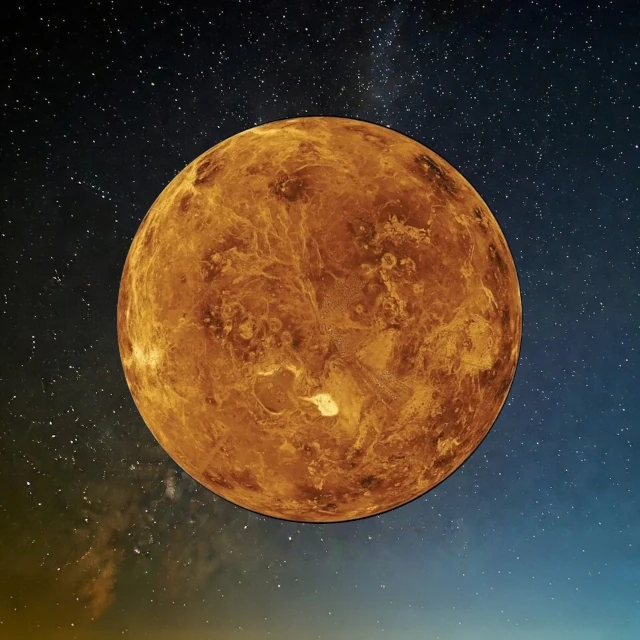
Venus is the ultimate example of a runaway greenhouse effect. Its atmosphere, composed of 96% carbon dioxide, creates a thermal trap so effective that surface temperatures constantly reach 462°C, hot enough to melt lead. This infernal heat is even greater than that of Mercury, which is closer to the Sun. Thick layers of sulfuric acid clouds trap heat, creating a true planetary furnace. Scientists consider Venus a warning of what could happen to a planet whose climate balance is disrupted.
Venus has the unique characteristic of rotating in the opposite direction to the other planets in the solar system. On Venus, the Sun rises in the west and sets in the east. Additionally, its rotation is extremely slow: a single Venusian day lasts 243 Earth days, which is longer than its year (225 Earth days). Thus, a day on Venus lasts longer than a Venusian year. This extreme slowness could be the result of a giant collision in the past or intense tidal effects exerted by the Sun.
If you could stand on the surface of Venus, you would be crushed by atmospheric pressure 92 times greater than Earth's, equivalent to the pressure felt nearly one kilometer deep in our oceans. This extremely dense atmosphere is mainly composed of carbon dioxide, with sulfuric acid clouds that reflect sunlight so well that Venus is the brightest object in the night sky after the Moon. This colossal pressure has destroyed all probes sent to its surface, which have only survived a few hours before being crushed or melted.
Venus, often called the "Morning Star," is a fascinating world that may have had oceans in the distant past. Understanding how this planet, so similar to Earth in size and composition, became a hellish world is one of the great challenges of modern planetary science. Learn more.
N.B.: The official definition of a planet (since 2006) requires it to orbit the Sun, have a spherical shape due to its own gravity, and have "cleared" its orbit.